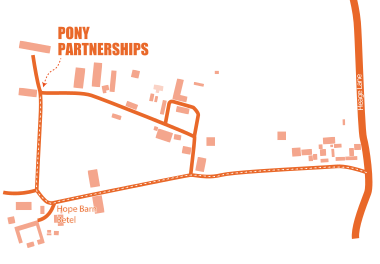What can horses teach us about conflict?
Posted 1 Dec 2015
I have historically been someone who has avoided conflict. In recent years I have tried to become more assertive but have found that finding a balance between assertiveness and aggression has been difficult. Whilst spending time watching the herd, it has struck me that horses have a particular way of handling conflict in the herd and I wondered what I could learn from this. I am not talking about conflict between horses and humans, that is a whole different issue, I am interested in how horses relate to each other within the herd.
Many parallels can be drawn between humans and horses. Like humans, horses are social animals who communicate mianly with their body language; however, being prey animals, horses are much more sensitive to even small changes in their companions body language. Many parts of the body, including the tail, ears, face and legs, can be used independently or in combination to signal various things.
Horses live as herds to keep themselves safe from predators. Like humans, in order to live together, they tend to establish ‘rules’ to manage interactions between members of the herd and minimise the risk of serious conflicts. These ‘rules’ help rank the herd related to who is in charge, who does as they are told and everyone in between. Size can be a factor in who is in charge, but as some of you may know, sometimes the smallest horses can be the ones calling the shots! There does not appear to be equality within the herd, rather a social order where levels of dominance vary depending on ranking. Like humans, some horses have no desire to move upwards in the rankings whilst some can be more assertive. It may be that these preferences are integral in maintaining a peaceful herd.
Horses like to have a leader; one role of the ‘lead’ horse is to resolve any conflicts between other horses. There are some situations where they will not intervene but let the horses involved fight it out in order to learn a particular lesson. If the fight is more serious they may get involved displaying aggressive body language – if this warning is not enough, they may throw in a bite or kick. As soon as the message has been received they become very passive and carries on with what they were doing previously, such as eating or grooming; they don’t hold a grudge.
So what can I learn from this?
I think that this is where things get even more complex! As humans, we socialise in various different ‘herds’ on a day to day basis. Without the imperative of survival, the dynamics and rankings of our groupings do not need to be as clear. As a society, these roles are more explicit, but if we think about the groups that we spend time with, often the dynamics can shift which can be where conflict occurs.
I reflect that my greatest learning from the horses is to be clear in my communication and not hold a grudge. I cannot have control over how others act, however, and this can be where I find conflict difficult. Without a survival imperative and no ‘lead horse,’ the person I may be experiencing conflict with has no clear reason to act differently and neither, in the same way, do I! Perhaps an even more compelling reason to spend even more of my time in a field of horses!

Bibliography
Forsyth Sappington, B. ‘Horse Herd Hierarchy.’ Available at: http://www.horsechannel.com/horse-training/whos-in-charge-366.aspx
Sharpe, N. (2011) ‘Understanding Horse Herd Dynamics.’ Available at: http://www.happy-horse-training.com/herd-dynamics.html



















